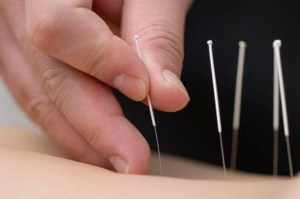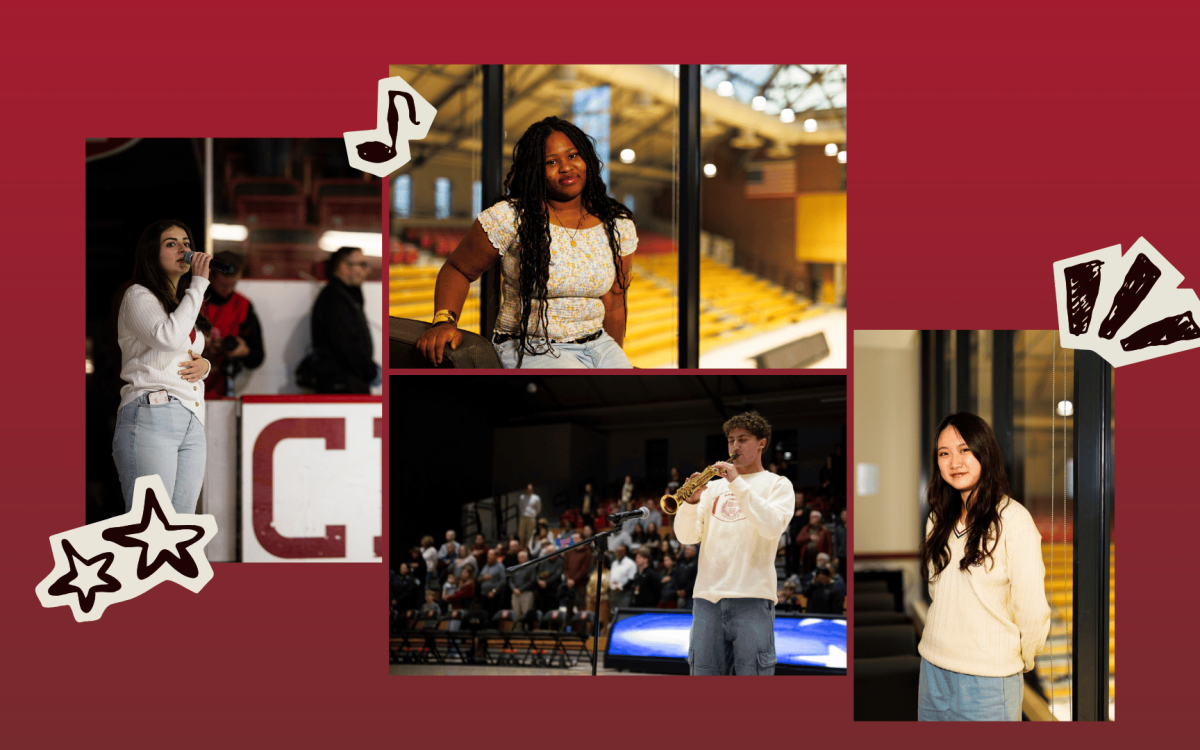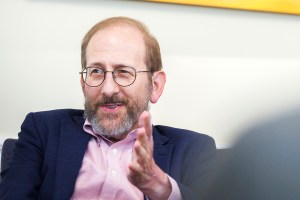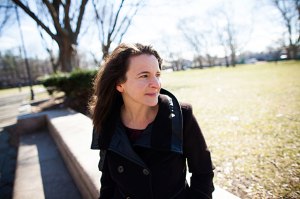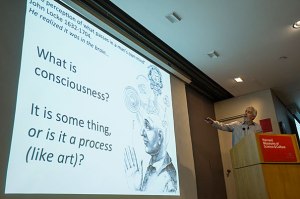All articles
-
Campus & Community
Tips on guiding parents through media maze
As part of the Harvard Ed Portal Faculty Speaker series, Harvard Graduate School of Education’s Joe Blatt shared his research on ever-changing technology and media’s impact on children.
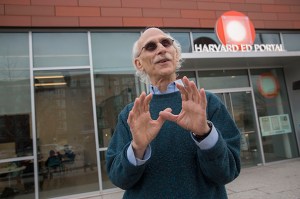
-
Health
Study flags later risks for sleep-deprived kids
Children ages 3 to 7 who don’t get enough sleep are more likely to have problems with attention, emotional control, and peer relationships in mid-childhood, according to a new study led by a Harvard pediatrician.

-
Campus & Community
Get sorted
It’s Housing Day 2017 at Harvard, first with dorm assignments, and then with revelry.
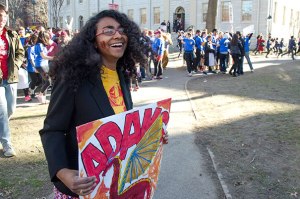
-
Campus & Community
Finalists named in President’s Innovation Challenge
Harvard Innovation Labs announced the 15 finalists for this year’s President’s Innovation Challenge. The grand prize winner will be named May 9.
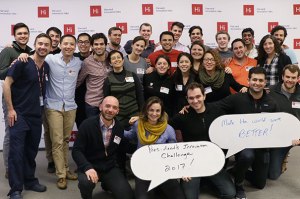
-
Science & Tech
Robots, exoskeletons, and invisible planes
The Defense Advanced Research Projects Agency, or DARPA, is the rare government agency that is all about change, in this case endlessly improving technology that has military applications.

-
Health
How a child made scientists think of cytokines as knobs instead of switches
A rare anemia is opening scientists up to a new way of thinking about how to adapt and employ cytokines, messenger molecules of the blood and immune system, as tools for treatment and the promise of precision medicine.

-
Health
Brain-training app creators join in the genetics game
The Wyss Institute and Harvard Medical School’s Personal Genome Project are collaborating with Lumos Labs, the makers of Lumosity, to investigate the relationship between genetics and memory, attention, and reaction speed.
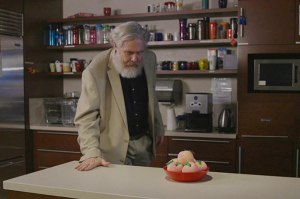
-
Campus & Community
When undergrads are just living
New leadership at the Office of Student Life brings ideas and a fresh approach to supporting students and helping them have a rich and satisfying College experience.
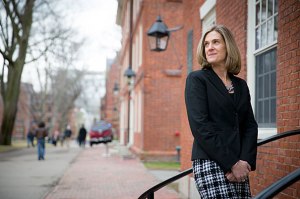
-
Science & Tech
Why sing to baby? If you don’t, you’ll starve
A new study suggests that infant-directed song evolved as a way for parents to signal to children that their needs were being met, while leaving time for other tasks, like food foraging or caring for other offspring.

-
Campus & Community
Lessons in observation
A faculty exchange about the humanities and sciences formed the centerpiece of the February Your Harvard: Miami event.
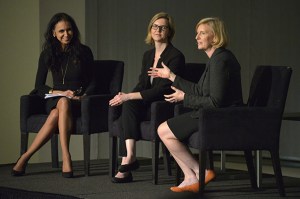
-
Campus & Community
Ruth Hubbard Wald, 92
At a Meeting of the Faculty of Arts and Sciences on March 7, 2017, the Minute honoring the life and service of the late Ruth Hubbard Wald, Professor of Biology, Emerita, was placed upon the records. Professor Hubbard was a superb biochemist who studied the light-sensitive molecules in photoreceptors and was a prominent feminist and…
-
Campus & Community
Zuckerberg named Commencement speaker
Internet leader and philanthropist Mark Zuckerberg is the featured speaker at Harvard’s 366th Commencement on May 25.

-
Health
The grateful life may be a longer one
Psychiatrist Jeff Huff is leading an MGH effort to determine whether positive thinking can promote better health.
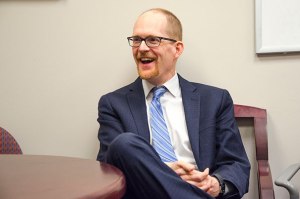
-
Nation & World
The loaded history of self-defense
The Gazette interviewed historian Caroline Light about her new book, “Stand Your Ground: A History of America’s Love Affair with Lethal Self-Defense.”

-
Arts & Culture
Fresh off Oscar win, another honor for Davis
Viola Davis was honored by the Harvard Foundation as Artist of the Year during the 32nd annual Cultural Rhythms Festival.
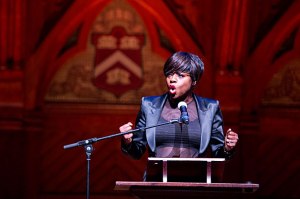
-
Arts & Culture
Life in wartime, etched in sound
Radcliffe Fellow and Boston Globe critic Jeremy Eichler is working on two books examining music and memory against the backdrop of World War II.
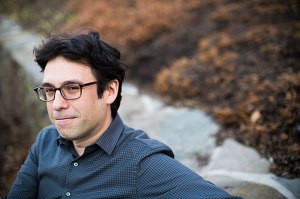
-
Campus & Community
Law School receives Scalia papers
The family of the late, influential Supreme Court Associate Justice Antonin Scalia has donated his papers to the Harvard Law School Library.
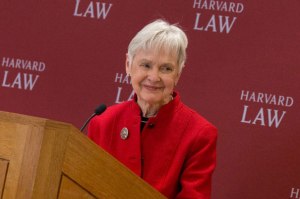
-
Campus & Community
Discovering the humanities at Harvard
Harvard’s brightest share their stories in a new video highlighting the value of studying art and culture.
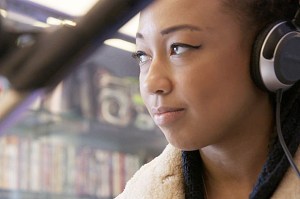
-
Science & Tech
7 projects win funding for climate change solutions
Seven Harvard projects will share $1 million to help battle climate change across a range of academic boundaries.
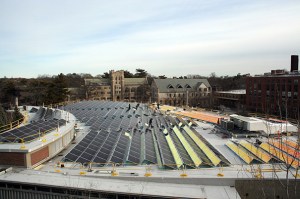
-
Campus & Community
Probing how colleges benefited from slavery
Hundreds of listeners from Harvard and beyond packed a Radcliffe auditorium on Friday for a series of wrenching discussions about the historical role of universities in the propagation of slavery.…
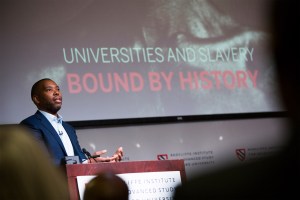
-
Campus & Community
A day of Hillary at Harvard
Former Secretary of State Hillary Clinton visited Harvard Friday for several private sessions with students and faculty to discuss some of the challenges she faced as the nation’s top foreign policy representative from 2009-13.
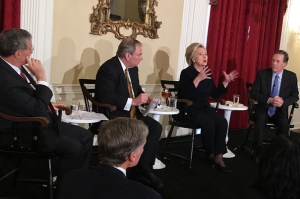
-
Campus & Community
Lectures That Last offers clear message
Faculty from each of Harvard’s 12 graduate Schools addressed a full house at the seventh annual Lectures That Last event held at Harvard Business School’s Burden Auditorium on Feb. 23.
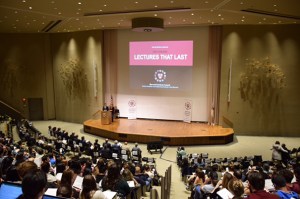
-
Arts & Culture
Reviving the past, one revision at a time
Ahead of a Harvard visit, Pulitzer Prize winner Jennifer Egan talks about the research behind her forthcoming historical novel, “Manhattan Beach.”
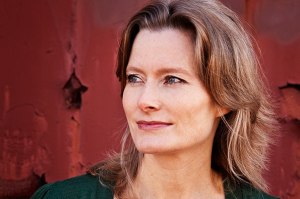
-
Work & Economy
For retail, the revolution is televised
For retail, the revolution is being televised, or at least delivered through online screens.
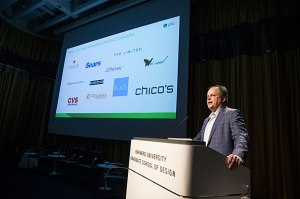
-
Science & Tech
Making math more Lego-like
A trio of Harvard researchers has developed a new 3-D pictorial language for mathematics with potential as a tool across a wide spectrum, from pure math to physics.
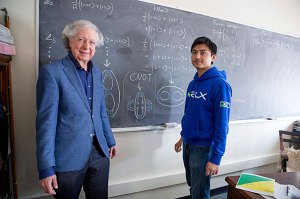
-
Health
Underwater photography inspires conservation
Keith Ellenbogen captures the ecosystems deep within the oceans, bringing them to life through his underwater photography.

-
Campus & Community
The focus is Harvard and slavery
A new exhibit at Harvard’s Pusey Library, “Bound by History: Harvard, Slavery, and Archives,” contains much of what researchers have uncovered so far related to Harvard’s ties to slavery. But experts say there is much more to be found.
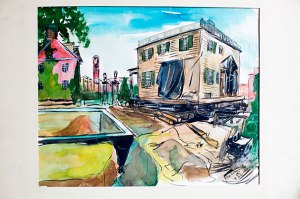
-
Health
Study shows differences in effects of ‘real’ and ‘sham’ acupuncture
Researchers saw improvement in carpal tunnel syndrome symptoms after “real” acupuncture and brain remapping. The study also found no physiologic improvements from “sham” acupuncture.
